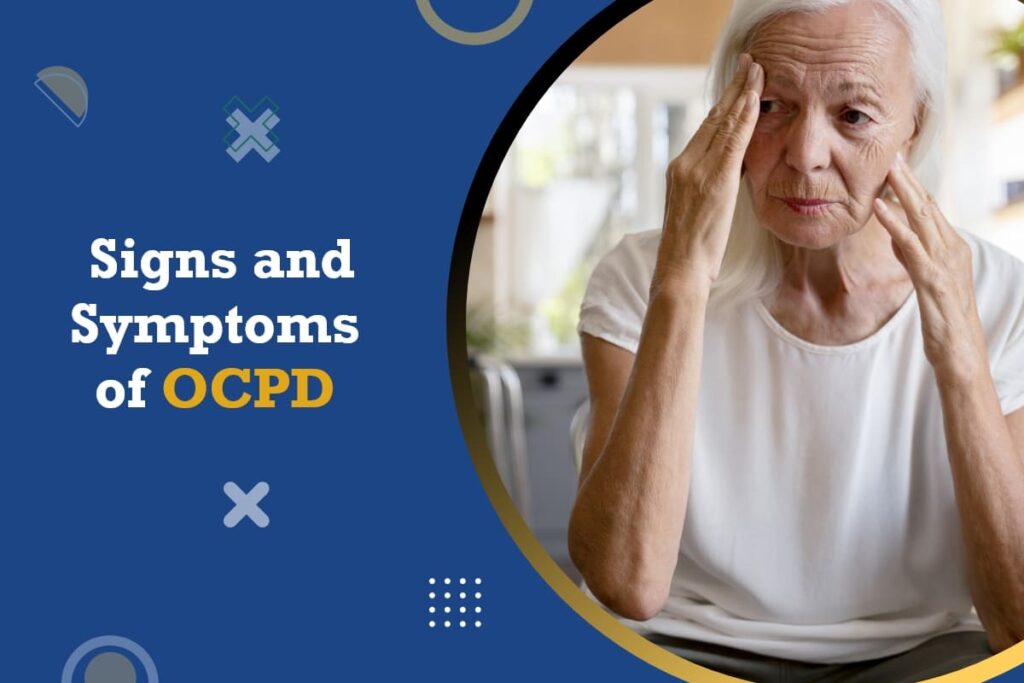Are you someone who is always striving for perfection? Do you get bogged down in the details and obsess over small things? While these traits can be positive, they may also be signs of a more severe condition – Obsessive Compulsive Personality Disorder (OCPD).
The post will explore the signs and symptoms of OCPD so that you can better understand this condition and seek help if needed. So buckle up and get ready to learn more about the inner workings of your mind!
What Is OCPD?

Obsessive Compulsive Personality Disorder is referred to as OCPD. It is a subtype of personality disorder characterized by an obsession with control, perfection, and orderliness. People with OCPD frequently exhibit excessively rigid thinking and conduct and may find it challenging to be adaptable or flexible.
They frequently hold themselves and others to high standards; they may become offended or critical if those expectations are not satisfied.
It’s crucial to understand that OCPD is distinct from OCD (Obsessive Compulsive Disorder), which involves various obsessive behaviors or obsessions. Despite similarities, OCPD and OCD are distinct in terms of their signs and underlying reasons. The quality of a person’s relationships, career, and overall well-being can all be significantly impacted by OCPD.
If you suffer from any of these conditions, visit the Jagruti Dementia Centre. They offer the best obsessive compulsive disorder treatment in Pune.
Difference Between OCD And OCPD
There are several critical differences between OCD and OCPD. Here are some of the most important ones:
Obsessions vs. compulsions: People with OCD have repetitive, unwanted thoughts (obsessions) that they must act on (compulsions). People with OCPD also have, but these tend to focus more on perfectionism and control. For example, a person with OCPD might need to organize their home or workspace meticulously.
At the same time, someone with Obsessive Compulsive Disorder (OCD) might have intrusive thoughts about germs and contamination that lead them to wash their hands excessively.
Anxiety vs. stress: Anxiety is a core symptom of OCD, while stress is more often associated with OCPD. This difference can be seen in how people with each condition cope with their symptoms.
People with OCD often avoid situations that trigger their obsessions or compulsions, while people with OCPD may push through their anxiety or stress to meet their high standards.
Impairment: Obsessive Compulsive Disorder and OCPD can cause significant impairment in a person’s life, but this is usually more severe in OCD. People with OCD may struggle to maintain relationships or hold down a job due to the time-consuming nature of their compulsions.
In contrast, people with OCPD may have difficulty relaxing or enjoying leisure activities because they need control.
Treatment: The good news is that both OCD and OCPD are treatable conditions. You can get the best doctor for OCD treatment in Delhi at Jagruti Dementia Centre.
Signs And Symptoms Of OCPD

The most common signs and symptoms of OCPD include:
Perfectionism: OCPD individuals often set high standards for themselves and others. They may be overly critical and have difficulty completing tasks if they are not done perfectly.
Excessive orderliness and organization: OCPD individuals often need things done a certain way and can become very upset if their routine is disrupted. They may have difficulty relaxing and be overly conscientious about work, school, or other activities.
Inflexibility: Individuals with Obsessive Compulsive Personality Disorder often have difficulty being flexible and may insist on doing things their way. They may need help adapting to change and resisting new ideas or experiences.
Preoccupation with details: OCPD individuals are often preoccupied with minute details and can miss the big picture. They may spend excessive amounts of time on small tasks and pay excessive attention to detail to the point of interfering with their ability to complete tasks.
Rigidity: Individuals with OCPD tend to be inflexible in thinking and actions. They may have difficulty seeing other points of view and may hold onto their own beliefs even when presented with evidence to the contrary.
Looking for the best psychiatrist in Chennai for OCD? Get expert care from our staff of knowledgeable professionals by coming to Jagruti Dementia Centre right now. Call them immediately at +91 9833365230 to make an appointment and begin your path to a better, healthier life.
